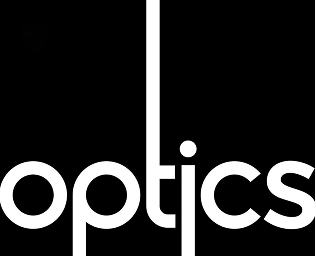The search landscape isn’t just changing. It’s fundamentally transforming the way brands get discovered, how they earn trust, and what success even looks like anymore. If you’re still playing by the old SEO playbook, it’s time to reconsider your strategy.
A seismic shift is underway, and the brands that adapt now will be the ones leading the conversation in 2026.
The Death of Keyword Hunting and the Rise of AI Conversations
Remember when getting found online meant obsessing over the perfect keyword density? Those days are fading fast.
Today’s search isn’t about matching queries to websites. It’s about natural language conversations with AI companions. When marketers search ChatGPT, Gemini, Perplexity, or Claude, they’re not just looking for information. They’re having a multi-step dialogue where AI asks clarifying questions, tailors answers to their specific situation, and acts less like a search engine and more like a knowledgeable colleague.
This shift from keywords to conversations fundamentally changes what it means to be “found.” Your content needs to stand out not to algorithmic keyword matching, but to AI systems that understand context, nuance, and intent. The platforms doing this best are already steering users through complex journeys where organic guidance shapes decision-making before any ads ever appear.
Zero-Click Search Is Real (And That’s Actually Good News)
Here’s a hard truth: traffic to your website is dropping because users are getting answers directly from AI overviews and snippets without ever clicking through.
But before you panic, consider this: the traffic that does click is higher quality. These are engaged users further along in their decision journey. They’re not casual skimmers. They’re people ready to move closer to conversion.
This demands a fundamental shift in how you measure success. CTR and volume metrics are becoming outdated. Instead, focus on these emerging KPIs:
- Inclusion: Is your brand being mentioned in AI responses?
- Sentiment: How is your brand being talked about?
- Impression tracking: How often does your content appear in AI-generated answers?
- Conversion quality: Traffic from AI platforms converts at higher rates than traditional search
It’s not about getting more clicks anymore. It’s about getting the right clicks from the right people at the right moment.
The New Search Journey: Organic First, Then Paid
The traditional search funnel is broken. The old path was simple: user searches something, sees an ad, clicks it. Done.
Now there’s a critical middle layer: organic content that guides and shapes user intent before they ever see paid advertising. Think of organic content as the foundation that AI uses to calibrate what users need. Only after this foundational stage do paid ads even enter the conversation.
This means your organic strategy is no longer just about ranking for keywords. It’s about earning inclusion in AI responses and establishing your brand as a trusted information source. Strong, authoritative organic content now drives paid performance more than ever before. Skip the organic layer, and your paid strategy will suffer.
The New Reputation Game: Transparency Beats Silence
AI doesn’t just retrieve information. It forms opinions. Platforms like Perplexity surface recommendations with two positives and one negative as a default. Your brand isn’t being judged by algorithms anymore. It’s being interpreted by AI systems trained on millions of data points.
Here’s what this means for reputation management. Owning the narrative is critical, but “owning” doesn’t mean hiding the bad stuff. It means addressing it head-on.
Key strategies for AI-era reputation management:
- Own the narrative by publishing authoritative, accurate content across multiple formats
- Engage publicly instead of “taking it offline”
- Address criticism transparently to influence how AI interprets your brand
- Invest in review generation across platforms where your audience is active
- Monitor how your brand appears in AI search results and overviews
Because Large Language Models increasingly pull from Reddit, review forums, and third-party reviews, your presence in these communities matters more than ever.
Topical Authority: The New Competitive Edge
Being a generalist is harder than ever. AI engines increasingly reward specificity and depth. Topical authority (being known as the go-to source in your niche) matters more than broad brand recognition.
But here’s where it gets interesting: AI attributes expertise to people, not just companies. A thought leader who publishes consistently across YouTube, blogs, and LinkedIn can directly influence how AI systems rank, cite, and recommend that person’s content. This is entity authority, and it’s a game-changer.
Structure your content with this in mind. Use FAQs, pull quotes, and clear headers to make your content “agent-readable.” Think of AI as a sophisticated content interpreter, not a user. It needs clean structure to properly understand and surface your expertise.
Smaller Brands Have Never Had a Better Opportunity
If you’re worried that only big brands can win in AI search, think again. The playing field is actually leveling.
AI pulls heavily from community-driven platforms: Reddit, niche forums, review sites, and user-generated content. Smaller brands that build authentic relationships in these communities can achieve surprising visibility. You don’t need massive budgets. You need genuine participation and review generation across the right platforms.
For smaller teams, the actionable strategy includes:
- Encourage and guide customer reviews across niche platforms where your audience hangs out
- Create hyper-relevant, structured content that speaks directly to your niche
- Monitor your brand’s presence in AI search results to see what’s working
- Join relevant communities and contribute real value instead of just promoting
- Build authentic relationships in forums and communities your customers trust
How to Structure Your Content for AI Readability
This is where tactical execution matters. If you’re writing content from now on, structure it for both people and machines:
- Clear headlines and subheads that signal topic shifts
- Bulleted lists that break down complex ideas
- Short, scannable paragraphs instead of dense blocks of text
- FAQs that answer the questions your audience actually asks
- Authoritative quotes with context to add credibility
- Summarized takeaways (TL;DR) that let people grasp your core message instantly
- Multimedia content (videos, infographics, audio) to improve visibility
Videos and infographics are especially important. Platforms like Gemini increasingly cite YouTube content alongside written sources, giving multimedia assets new weight in the AI search landscape.
The Strategic Shift You Need to Make Now
As we move into the second half of 2025, the opportunity is clear: brands that shift from volume to quality will win.
- Stop measuring just clicks. Start measuring influence.
- Stop obsessing over rankings. Start optimizing for inclusion and sentiment.
- Stop gating educational content. Start ungating it to improve AI visibility.
- Stop hiding criticisms. Start addressing them publicly with transparency.
The brands that adapt quickly, think holistically about their content strategy, and optimize for both people and AI will be the ones shaping conversations in their industries.
Your storytelling doesn’t need to change. It just needs to be structured, purposeful, and visible to both humans and the AI systems that influence them.
FAQs About AI Search and SEO Strategy
What exactly are Large Language Models and how are they changing search?
Large Language Models are AI systems that understand and generate human-like language. They’re powering a shift from keyword-based queries to conversational search, where users interact in natural language with tools like ChatGPT, Gemini, and Perplexity. These models don’t just retrieve information. They’re shaping opinions, offering summarized overviews, and reducing the need for users to click through to traditional websites.
Why is zero-click search a problem for brands?
Zero-click search means users get answers directly in the search interface without visiting your website. This reduces traffic, especially to blog and educational content. However, the traffic that does arrive converts at much higher rates (60-70% in some cases) because users are already further along in their buying journey. The lesson: shift your KPIs from volume to quality and influence.
How can I protect my brand from AI-driven misinformation?
Be proactive by publishing authoritative, accurate content across multiple formats (press releases, blogs, videos, FAQs). Address criticism publicly instead of ignoring it. Transparency helps influence how AI agents interpret your brand. Use monitoring tools that track how your brand appears in AI results and search overviews.
How do I influence how my brand appears in AI-generated summaries?
Create well-structured, semantically clear content with FAQs, bullet points, and expert quotes. Develop topical authority by consistently publishing content on your core subject areas. Build entity authority by getting your experts quoted in other publications, especially on LinkedIn and YouTube. Structure all content with clear headers, lists, and scannable paragraphs so AI can properly interpret it.
Do smaller brands actually have a chance against larger competitors?
Absolutely. AI search engines pull heavily from Reddit, review forums, and user-generated content, giving smaller and more authentic brands real visibility. Focus on your niche audience, encourage reviews on relevant platforms, and contribute authentically to communities your customers trust. You don’t need massive budgets. You need genuine participation.
What metrics should I track if I’m getting less traffic from search?
Traditional CTR metrics are becoming less useful. Instead, shift to:
- Impression tracking: How often your brand appears in AI-generated answers
- Inclusion metrics: Whether your brand is mentioned in AI responses
- Sentiment analysis: What tone is associated with your brand
- Conversion rate: Traffic from AI platforms often converts at higher rates than traditional search
Quality matters more than volume now.
Should I still gate content for lead generation?
Probably not. Gated content is invisible to AI tools, limiting your ability to be included in answers and recommendations. Consider ungating educational content and reserving gated assets for true high-value interactions like event registration or product demos. The priority now is brand visibility and trust-building, which ultimately drives more qualified leads.
How should I structure content for AI search and agent readability?
Structure content like you’re writing for both people and machines:
- Clear headlines and subheadings
- Bulleted lists for key points
- Short, scannable paragraphs
- FAQs that address common questions
- Authoritative quotes with context
- Summarized takeaways and TL;DR sections
- Multimedia content (videos, infographics, audio)
This approach improves visibility across both human readers and AI platforms.
TL;DR: What You Need to Know
The search landscape has fundamentally changed. Here’s what matters now:
- AI companions guide user intent before paid ads appear, making organic content more critical than ever
- Traffic is declining, but the traffic that clicks through is higher quality and converts better
- Your brand reputation is shaped by AI interpretation, not just algorithms, so transparency is essential
- Topical authority and structured content are the new competitive advantages
- Smaller brands have real opportunities if they build authenticity in communities their customers trust
- Measure influence and sentiment, not just clicks and rankings
- Ungate educational content and focus on brand visibility over lead gating
The ten blue links are gone. AI-led answers are here. Those who adapt fast will thrive.
Ready to audit your content for AI search? The time to start is now. Strong storytelling plus strategic structure is the formula winning brands are using in 2025.

